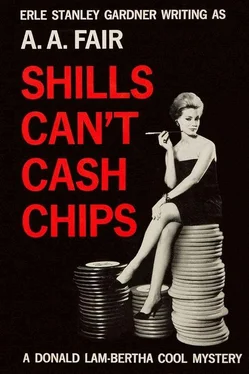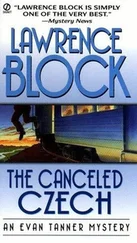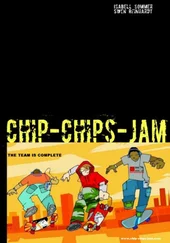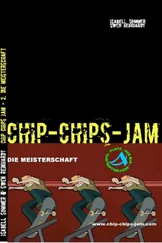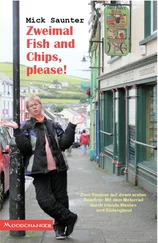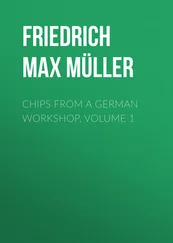“Suppose my story doesn’t agree with the facts?”
He grinned and said, “The facts will agree with your story. I want you to remember what I told you. You saw the man driving the big Buick. He looked a little bit tired. He wasn’t paying too much attention to what he was doing. He was in a stream of traffic. He had tried to cut out around the stream of traffic, saw he couldn’t make it and had ducked back in, but he was going faster than the traffic ahead.
“There’s a signal at Seventh and Main. It changed and the traffic ahead slowed to a stop. This man was a little behind time with his reactions and he smashed into the car ahead.
“Now, that is something you saw particularly. You saw the girl’s head snap back under the impact. It went way, way back. You stood and looked for a moment, saw the traffic crawling around the two stalled cars, saw the man get out, saw the girl get out, saw them exchange addresses from their driving licenses, saw the man go and look at the front of his car and assess the damage; there was water trickling from his radiator. Then he got back in his car, the girl got back in her car. You started on walking.”
“Where was I standing?” I asked. “They’ll want to know the exact spot.”
“Come on,” he said. “I’m showing you the exact spot. Sign your name on this statement.”
“How about mailing it?” I asked.
“I’ll attend to all that,” he said. “Come on now, we’ll walk down the street and I’ll show you exactly where you were standing and exactly where the accident took place.
“Then we’ll go to the Perkins Hotel. I’ll get a room with a bath... You got any clothes?”
“No.”
“All right,” he said. “You can get a razor, a toothbrush and what clean clothes you need. You stay in the room.”
“How long?”
“Until I tell you to leave.”
“I can go out to eat and—”
“Oh, hell yes,” he said. “You can go out to eat. You can go out and wander around. You can come and see Doris if you want to, but you keep in touch with the hotel. Every hour or so you check back in to see if there’s been a telephone call for you.”
“And when a telephone call does come?”
“You saw the accident.”
“Who do I tell that to?”
“Anybody that asks.”
“And what do I get out of it?”
“You get immunity for tampering with my car,” Bedford said. “You get your room at the hotel and here’s some expense money.”
He pulled a roll of bills from his pocket and handed me a twenty and a ten. “When you get all done,” he said, “you get a hundred bucks.”
“What about this two hundred and fifty dollars that’s mentioned in the ad?”
“That,” he said, “you don’t get.”
“Who does get it?”
“You don’t. Now let’s quit beating around the bush. I haven’t time to be polite. Do you want to take this or do you want me to pick up that phone, call the cops and tell them I’ve got the man who was tampering with my car yesterday and show them the place in the wires where you scraped the insulation through and jumped the switch?”
“I’ll sign the paper,” I said.
“That’s better,” he told me. “Stick your name on there.”
I signed the paper.
He folded it and put it in his pocket. “Come on,” he said. “I’ll show you where you were standing when you saw the accident.”
Bedford guided me down to Main Street, then walked on until we came to the block between Seventh and Eighth. He said, “The accident took place at the intersection just ahead.”
I paused a moment to look at the intersection.
“No, no,” Bedford warned, “take it in your stride. Keep right on walking, Lam. We’ll go to the corner, then turn right, cross the corner, then turn left, and keep walking toward Sixth Street. We’ll pause to look in a store window at something, then turn around and go back to the corner of Seventh and Main, turn right, then turn left, and walk on down to the Perkins Hotel. That’ll give you a chance to see everything.
“Now remember, there were two or three cars ahead of the car that was hit. You can’t remember just how many, but you know that the one that was hit wasn’t the one that was right up against the intersection traffic signal.
“You’d noticed this car driven by Holgate, although of course you didn’t know who he was at the time, but he was evidently impatient and he’d swung out to the left to try and get ahead of the string of traffic. He was making a run for it when something caused him to change his mind. He evidently saw he couldn’t make it — you don’t know what it was — so Holgate swerved his car back to the right into the line of traffic next to the curb, but he was going pretty fast. The light at the intersection changed to red, the whole string of traffic came to a stop and—”
“As I remember it,” I interrupted, “the light changed to amber first. The car that was in the lead could have got through the crossing before the red light came on, but the driver chose to slam on the brakes.”
Bedford put a hand on my shoulder and patted me approvingly, as a trainer might pat a smart dog. “Donald,” he said, “you’re all right! You’re a wonder. Now go ahead and tell me what happened after that.”
“Well,” I said, “everybody had to stop rather fast but this Buick that was driven by a man whose name I now understand was Holgate just didn’t stop at all. It kept right on going until it was within maybe three to four feet of the car ahead and then, apparently for the first time, he realized the traffic ahead had come to a dead stop. He slammed on the brakes so hard that I heard the rubber scream for just a tenth of a second and then there was the sound of the impact.”
“And then what happened?”
“The other cars went on through the crossing but these two cars stopped, and the girl who was in the sports car that had been rammed, got out and kept feeling the back of her neck with her hand. She seemed just a little dazed. She started to walk toward the front of the car, then turned and walked toward the back where Holgate was coming up. They stopped for a minute and exchanged names and addresses from driving licenses, and then the girl got in her car and drove off.
“Holgate walked around to look at the front of his car, which was leaking water from a punctured radiator, shook his head, got in his car, seemed rather surprised when it started to run, and then he drove off.
“The whole episode didn’t take over a minute, I guess — not more than the length of time required for a traffic signal to change maybe once, maybe twice.”
We reached the corner and waited for the signal.
“That’s fine,” Dudd said. “Now, if the accident took place between the third and fourth cars back from the intersection, that would put the car that was struck—”
“Right in front of that theater entrance,” I said. “That’s the way I remember it.”
“And the other car?”
“Well, the other car would naturally have been about fifteen feet farther back, just a car’s length.”
“You heard the noise of the impact?”
“I heard the noise but there were traffic noises and it was surprisingly quiet for an accident. I suppose that was because it wasn’t a head-on collision but one car rammed the tail of another.”
“Did it attract a lot of attention?”
“A few people looked but they kept on going about their business.”
“What did you do?”
“Well, I stopped until I saw the man getting ready to drive away.”
“Why?”
“Why did he drive away?”
“No, why did you stop?”
“I don’t know, just natural curiosity, I guess. And the girl was most attractive. I wondered if she was all right because I saw her head shoot back when the car hit. Evidently her neck was relaxed at the time because her head just snapped back.”
Читать дальше
